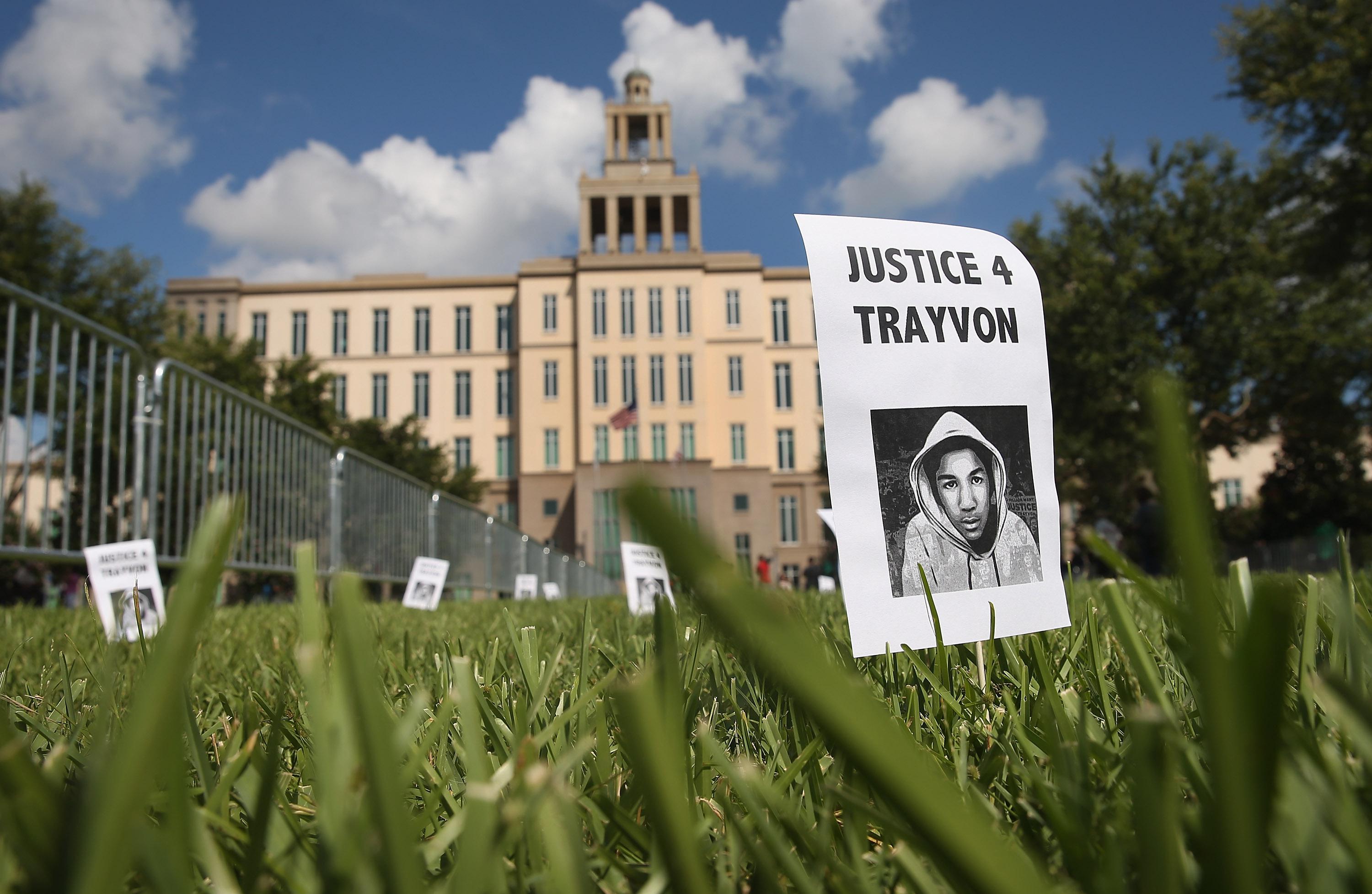On Saturday night, a Florida jury of six women found George Zimmerman not guilty of any crime in the shooting death of a black teenager named Trayvon Martin. Not murder. Not even manslaughter. A lot of people are having a hard time accepting this verdict, given that Zimmerman was armed with a pistol and Martin was not, and a police dispatcher told Zimmerman not to follow Martin, and he did it anyway.
It doesn’t help that the same prosecutor who lost the Zimmerman case recently won a conviction against Marissa Alexander, a black woman who fired a warning shot to chase off her abusive ex-husband, hurting no one. She was sentenced to 20 years in prison for aggravated assault with a deadly weapon. Twenty years for a warning shot against a known abuser versus no time at all for killing an unarmed teenager leaves you scratching your head and wondering if justice is not just blind but also insane.
I spent four years covering criminal courts in Florida. I covered every kind of case, from misdemeanors to murder. One thing I learned is that you can never predict what a jury might do once it’s locked away to deliberate. I covered one trial where the defendant was accused of bigamy, and his defense was: Sorry, I forgot I was married already. He walked.
Prosecutors around the state boast of their high conviction rates, but those stellar records tend to be built primarily on successful plea deals, not trials. And frankly, some of their trial successes turn out to be the result of flimsy or faulty evidence—Florida leads the nation in the number of death row inmates who were subsequently exonerated.
People who work in the court system can blame the legislature for the way our laws are worded. For instance, Florida’s “Stand Your Ground” law was based on a distortion of a single anecdote, and it has subsequently allowed drug dealers to avoid murder charges and gang members to walk free. The law has proven especially effective in providing legal cover if the victim is black. In 2005, for instance, Derrick Hansberry shot a romantic rival five times—four as the man tried to run away—but after he claimed a “Stand Your Ground” defense, a jury acquitted him of attempted murder.
Florida juries have proven to be very lenient even in cases that don’t involve “Stand Your Ground.” Two years ago, as you probably heard, a Florida jury found Casey Anthony not guilty of murdering her daughter. Two months ago, a Florida jury acquitted 70-year-old Ralph Wald of murder for gunning down his 41-year-old wife’s 32-year-old lover, whom Wald caught with his pants around his knees. In 2007, despite seeing a videotape of seven guards kicking and beating a 14-year-old boy named Martin Lee Anderson to death at a juvenile boot camp, an all-white jury acquitted them and a nurse who’d failed to stop the killing of manslaughter charges. The guards and nurse said they were just following normal boot camp rules and procedures.
Afterward, the family’s attorney told reporters, “You kill a dog, you go to jail—you kill a little black boy and nothing happens.”
Some Florida jury verdicts can make your head hurt. A Florida jury acquitted World Series hero Jim Leyritz of DUI-manslaughter in connection with a wreck in which a 30-year-old mother died—but they did convict him of drunk driving in connection with that same wreck. A criminal court jury acquitted a Clearwater police officer named Robert Milliron of a manslaughter charge for shooting an unarmed man. Then a civil court jury said Milliron was to blame for the death after all—but not the city that employed him, and thus the dead man’s family was not entitled to any monetary damages.
The most forgiving jury in Florida history was probably the one that heard the case of four white Miami police officers charged with murder in the death of a black insurance executive named Arthur McDuffie. A Marine Corps veteran, McDuffie died in 1979 four days after he went out riding on his motorcycle and wound up in a coma. The officers said he sustained his injuries when he crashed while trying to avoid being arrested for reckless driving. The truth was that the cops had caught up to McDuffie and then beaten and kicked him mercilessly, cracking his skull like an egg. A medical examiner testified that the fatal blow was “equivalent to falling four stories and landing between your eyes.” The cops phonied up the crime scene to hide what they’d done. It all came out anyway.
“My child is dead, they beat him to death like a dog,” McDuffie’s mother Eula said.
Because of pretrial publicity, the case was moved to Tampa, where an all-white jury voted to acquit the cops on all charges. Miami’s Liberty City erupted in three days of riots that left 18 people—eight white, 10 black—just as dead as Arthur McDuffie.
This blog has been largely devoted to pointing out the weird stuff that happens in Florida, most of it worth at least a chuckle or a gasp of astonishment. Thousands of people follow the Twitter feed called @_FloridaMan for the same reason—it highlights a host of strange and funny stories from the Sunshine State. After the Zimmerman verdict came out Saturday night, he tweeted: “Florida Man Not Guilty Of Killing Unarmed Teen Who Beat Him In Fight.” That one didn’t seem funny at all—and given the history of Florida juries, it wasn’t all that strange, either.
